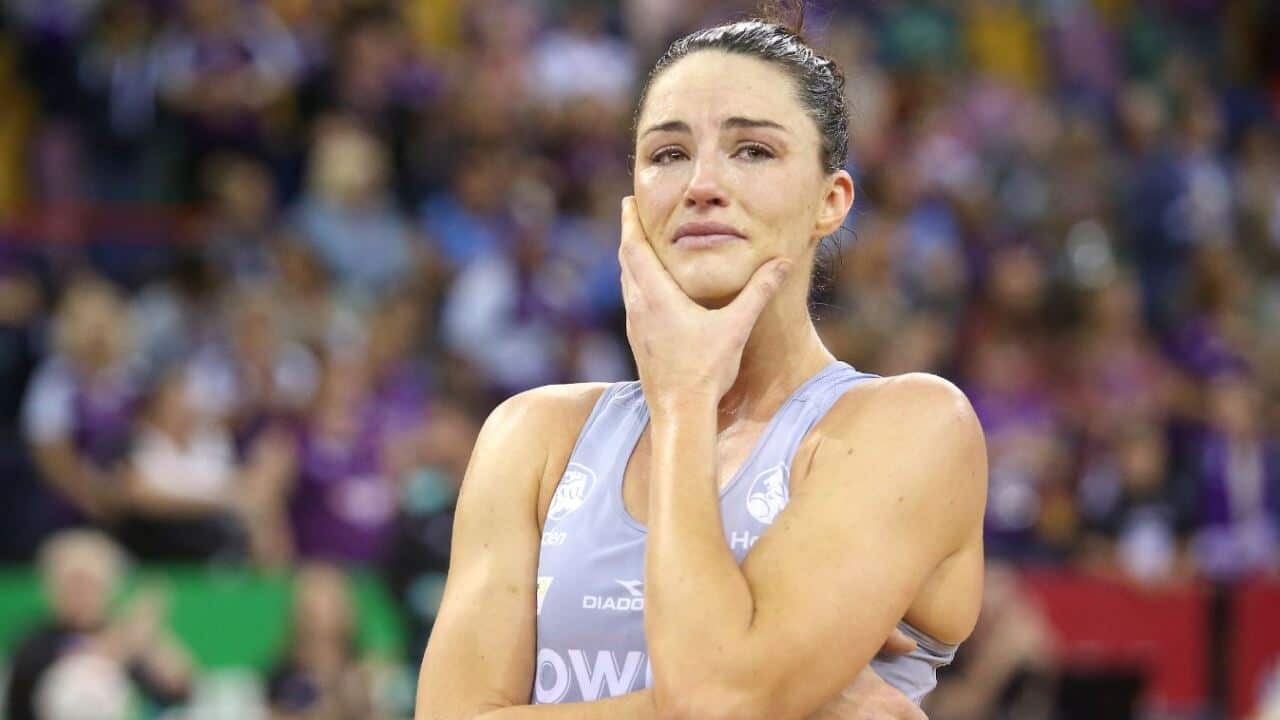Navigation
Install the app
How to install the app on iOS
Follow along with the video below to see how to install our site as a web app on your home screen.
Note: This feature may not be available in some browsers.
More options
You are using an out of date browser. It may not display this or other websites correctly.
You should upgrade or use an alternative browser.
You should upgrade or use an alternative browser.
Player Watch Sharni Layton (Retired 2021)
- Thread starter TradeDraft
- Start date
- Tagged users None
Is it wrong of me to have a man crush on Sharri?
Quicky
Brownlow Medallist
- May 27, 2008
- 25,775
- 31,855
- AFL Club
- Collingwood

- Other Teams
- Socceroos, Melbourne Victory
Great article on Sharni Layton, insight into her retirement from netball, and some lovely comments about the environment we've created in the AFLW team.

 www.sbs.com.au
www.sbs.com.au

 www.sbs.com.au
www.sbs.com.au

Former Diamonds netballer opens up about the toughest year of her netball career
Sharni Layton shares what really happened in the lead up to her retirement last year: “I'd be bedridden for anywhere between three to five days, exhausted, crying, not processing anything.”
Former Diamonds netballer opens up about the toughest year of her netball career
Sharni Layton shares what really happened in the lead up to her retirement last year: “I'd be bedridden for anywhere between three to five days, exhausted, crying, not processing anything.”
2017 is a year Sharni Layton won’t easily forget. As captain of the Diamonds, she accepted the title of International Player of the Year, ticking off another one of her lifetime goals. She’d already secured two world titles as well as Commonwealth Games gold.
“I never thought that I would play at the top level, let alone have the opportunity to captain my country,” she tells Insight, “I always wanted to be the best netballer in the world and in 2017 I got both of those things.”
“And I felt physically sick from achieving them.”
Despite her annual “breakdowns” that had started years prior and were initially laughed off, the star athlete continued to push on.
“The last tour would end, I would get home and I'd be bedridden for anywhere for three to five days, exhausted, crying, not processing anything,” she says.
“The more I strived to achieve and achieve, the bigger my resentment got and the more I started to dislike the game,” she says.
“I used to rock up to training in tears, wipe them away, hold a strong face, walk in, train, walk out, break down again.
“That yearly breakdown turned into monthly, which turned into fortnightly, turned into weekly, turned into daily.”
To the public Sharni appeared to be kicking goals. But by mid-2017, behind closed doors at a Diamonds training camp, she was hurtling her phone at a wall.
“It got to the point where I couldn't function day-to-day,” she says.
“I'm self-aware enough to know that that's not normal and it took me a little bit to gain the courage to get up, pick up my phone and actually call the Wellbeing Manager for the Diamonds and tell her that I wasn't okay.”
Like many other athletes before her, Sharni publicly cited “exhaustion” when she withdrew from the Quad Series in August 2017. Many didn’t expect the almost six-month career break that followed.
Privately, the netballer known for her enigmatic personality and easy smile fought to pull her sense of self back from the grips of depression.
“A month went by and I was still bedridden. Two months went by and I was still bedridden. Three months went by and I was still bedridden,” she explains.
The star player forced herself back to the game come January 2018 for the following season of Super Netball with the Collingwood Magpies.
“I had so much support from a fan base out there I didn't want to quit on them…I felt like I played more for them than what I did myself in the end,” she shares.
But as soon as Sharni returned to the court, she knew it was time to call an end to her netball career.
“It was my first training session back and I had to get through a whole another nine months of playing netball,” she says, “I knew that I was done…when you're done, you're done.”
With a sense of relief, Sharni played her last game of netball on August 4th last year and emotionally farewelled her supporters.
After another eight months of working with a psychologist and psychiatrist, Sharni started to feel again. She continues to see mental health professionals on occasion and now has a fresh outlook on life and sport.
Playing AFLW for Collingwood, Sharni says footy offers her something netball has lost.
“For me, netball was full time and I had to be the best, but in football, I suck!” she says proudly.
“I'm in this environment where girls are helping me learn this brand new skill and I'm literally just playing it for the love of it.
“I'm just surrounded by this great encouraging environment.”
Sharni wants see professional codes allow athletes time to foster social connections, pursue personal interests and a maintain a sense of self outside sport.
“It was the Australian dream to be an athlete and to be the best athlete in Australia,” she says.
“But what is actually important is what makes you feel good, and that's something that we definitely don't tap into.”

Former Diamonds netballer opens up about the toughest year of her netball career
Sharni Layton shares what really happened in the lead up to her retirement last year: “I'd be bedridden for anywhere between three to five days, exhausted, crying, not processing anything.”
Tarkyn_24
Okeydoke7 is [redacted]
- Dec 23, 2006
- 52,043
- 73,155
- AFL Club
- Collingwood

Erm man crush?Is it wrong of me to have a man crush on Sharri?




